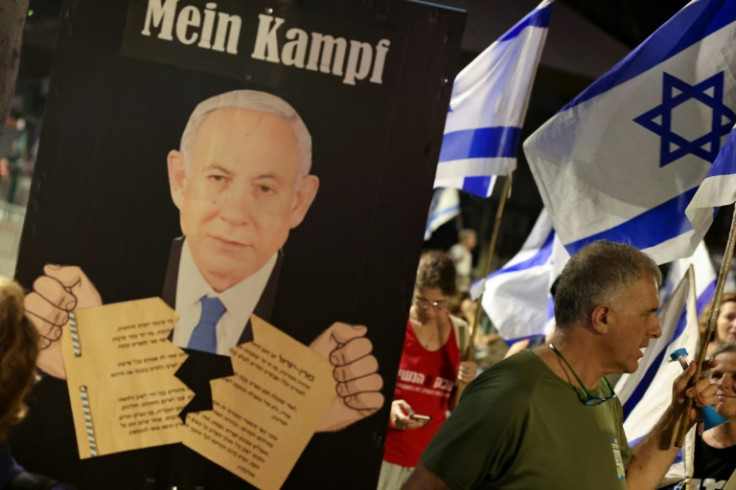Israelis Rally Again To Oppose Judiciary Overhaul

Thousands of protesters waving Israeli flags rallied on Wednesday in Tel Aviv against parliament's approval of a key judicial reform pushed through by the hard-right government in defiance of months-long mass protests.
"You have ruined the country and we will fix it. Democracy! Democracy!" chanted demonstrators in Israel's commercial capital, which has become the epicentre of anti-government demonstrations since the judicial overhaul was unveiled in January.
The proposals split the nation and triggered the biggest protest movement in Israel's history.
Despite the protests, Prime Minister Benjamin Netanyahu and his coalition allies approved in parliament last month a major clause of the package that critics fear open the way to more authoritarian government.
The amendment to the "reasonableness" clause was passed in the chamber on July 24 and aims to limit the powers of the Supreme Court in striking down government decisions the judges deem unreasonable.
"I'm against the government. What it's doing is moving all the power to one authority," protester Roei Ben Haim, 40, told AFP.
"Once they ruin the system it becomes important to me to take to the streets to tell them it won't pass."
He said amending the "reasonableness" clause in itself was not important, but because "it's the first act the government wants to cancel" people "must show the government we're determined in the face of any action it takes."
The "reasonableness" clause is the first major component of the judicial revamp to become law. Other proposed changes include allowing the government a greater say in the appointment of judges.
Critics accuse Netanyahu, who is on trial on corruption charges he denies, of trying to use the reforms to quash possible judgements against him.
He rejects the accusation.
Netanyahu's coalition government, which includes far-right and ultra-Orthodox Jewish parties, argues that the proposed changes to the judiciary are needed to ensure a better balance of power between elected officials and judges.
"There's no such thing as democracy without the Supreme Court," chanted the protesters on Wednesday evening.
Demonstration have drawn support from across the political spectrum and among secular and religious groups, blue-collar and tech sector workers, peace activists and military reservists.
The proposed changes have also drawn criticism from Israel's ally the United States.
President Joe Biden himself has repeatedly aired concerns, urging Israeli leaders not to rush the increasingly "divisive" reforms.
© Copyright AFP 2025. All rights reserved.





















